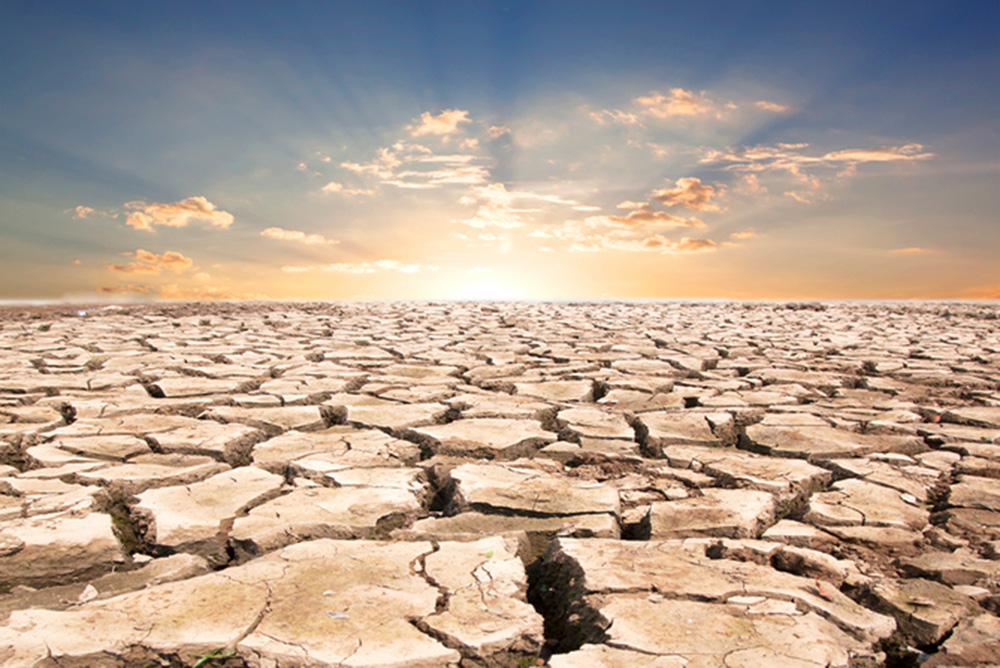
iStock
By Mary Carpenter
In this entry to MyLittleBird’s 2022 Summer Update series, Mary updates her former post on dehydration— the topic of many reader queries—to caution readers of its ability to strike without warning; and to offer a quick test for dehydration, along with a solution that has helped her.
EARLY SIGNS of dehydration, called “heat illness,” can include water retention, cramping muscles and, in more serious cases, fainting, dizziness and vertigo. For anyone who has suffered a few bouts of unanticipated dehydration, skin tests are a quick way to check: Push one finger into skin on the arm or use two fingers to pull upward on the skin of the other hand—in both cases, the more slowly the skin resumes its normal appearance, the higher the risk of dehydration.
The danger of dehydration without warning can increase with age because of a diminishing ability to sense thirst. Also hard to detect, kidney function that declines with age can cause fluid imbalance in the body that increases risk. And the body becomes less able to retain water, allowing dehydration to occur more rapidly. Finally, sweat glands that help cool the body respond more slowly with age, allowing core temperatures to rise and increasing the time it takes to recover.
What can help during hot weather is salt pills or salty chews—taken either once a day or more often as well as with early signs of dehydration (although people with high blood pressure should be careful). “Saltstick Fastchews,” for example, which taste something like sweet tarts, include small amounts of four electrolytes and promise to “reduce heat stress and muscle cramping.”
From Mary’s earlier post:
HUMID DAYS of summer can be deceptive. You feel puffed up with fluids but your clothes are damp with sweat. Drinking more water, however, is not always the answer. Although the body usually can reabsorb fluid from the blood as needed, dehydration causes the blood to become more concentrated—leading to water retention in the kidneys as well as in tissues throughout the body.
Thicker blood makes the heart work harder to pump the blood, which can cause a rise in heart rate to maintain blood pressure. In addition, one of the body’s first cooling actions is increasing the heart rate to move blood and heat outward to the skin. An elevated heart rate can increase the risk of fainting, often accompanied by dizziness and nausea.
Other early signs of dehydration include dryer mouth and eyes, darker urine, and feeling more tired and irritable. Bad breath can be a clue because dehydration reduces saliva along with its bacteria-fighting abilities. Dehydration also interferes with the body’s ability to regulate temperature, causing body temperature to rise or sometimes, paradoxically, to fall—causing chills.
When severe dehydration reduces fluid in the blood to the point of impeding blood circulation to the organs, the most serious result is life-threatening shock—which requires medical attention. While shock usually occurs only in cases of severe diarrhea, extreme heat can increase the risk.
Sweat contains more sodium than other electrolytes. Both dehydration and drinking too much plain water when dehydrated can cause hyponatremia—insufficient salt in the blood—which can trigger muscle cramping. Cramping can also result when the muscles become overheated during exercise, as well as by overexertion of the calf muscles, insufficient warm-ups and magnesium and/or potassium deficiency.
In cases of severe dehydration risk, UNICEF and commercial rehydration packages include salt and carbohydrates—sometimes simply sugar—to mimic the normal composition of fluid in blood, which improves absorption.
To stave off dehydration ahead of time, alternatives include pre-cooling and heat acclimation. In a Scandinavian study of different cooling methods, 12 experienced male runners were tested on three separate occasions: first after drinking a room-temperature sweetened beverage, then after a sweetened “slushy” (icy) drink and finally after cooling their skin by draping cold towels around their necks, immersing their arms in cold water and wearing underwear filled with ice packs. The athletes performed better after both the slushy drinks and skin cooling than after a room-temperature drink—but the effects of core cooling from the slushy drink wore off faster than the effects of skin cooling.
A different study, at the Environmental Extremes Laboratory in Brighton, England, tested nine recreational runners doing a simulated 5K race four times at top speed in a 90-degree heated room: first with no preparation; then after pre-cooling with frozen underwear and a chilling arm plunge, plus a cooling vest; next, after formal acclimation—cycling for 90 minutes in 99-degree heat for five consecutive days; and finally, after both pre-cooling and acclimation. Acclimation made the biggest difference in subsequent running times; adding pre-cooling provided little additional gain.
Because overheating alters many bodily functions, including efficient production and use of energy, many athletes use cooling vests to reduce excess heat while exercising. In one study, however, core cooling did not increase any more for the group wearing a cooling vest than it did for those who simply sat in the shade ahead of time—the only difference for the former was cooler skin and a feeling of coolness. Also, cooling vests and underwear come with the risk that reducing perceptions of body heat can mask rising core temperatures—making heat-induced illness more likely.
When the forecast predicts hot weather, I begin many summer days with a salty Fastchew, and after outdoor exertion sometimes add one more. And if drinking plain water doesn’t seem to relieve my thirst, I mix in some lemonade —with a vague idea of using the UNICEF formula, or at least adding the sugar component.
—Mary Carpenter regularly reports on need-to-know topics in health and medicine.

This was very helpful, especially during this hot summer in DC. Thank you.
Thanks so much for this article – explains a lot about how I have been feeling this hot,
humid Chicago summer – and is just in time to be included in my bag for a trip to hot, humid Sicily!